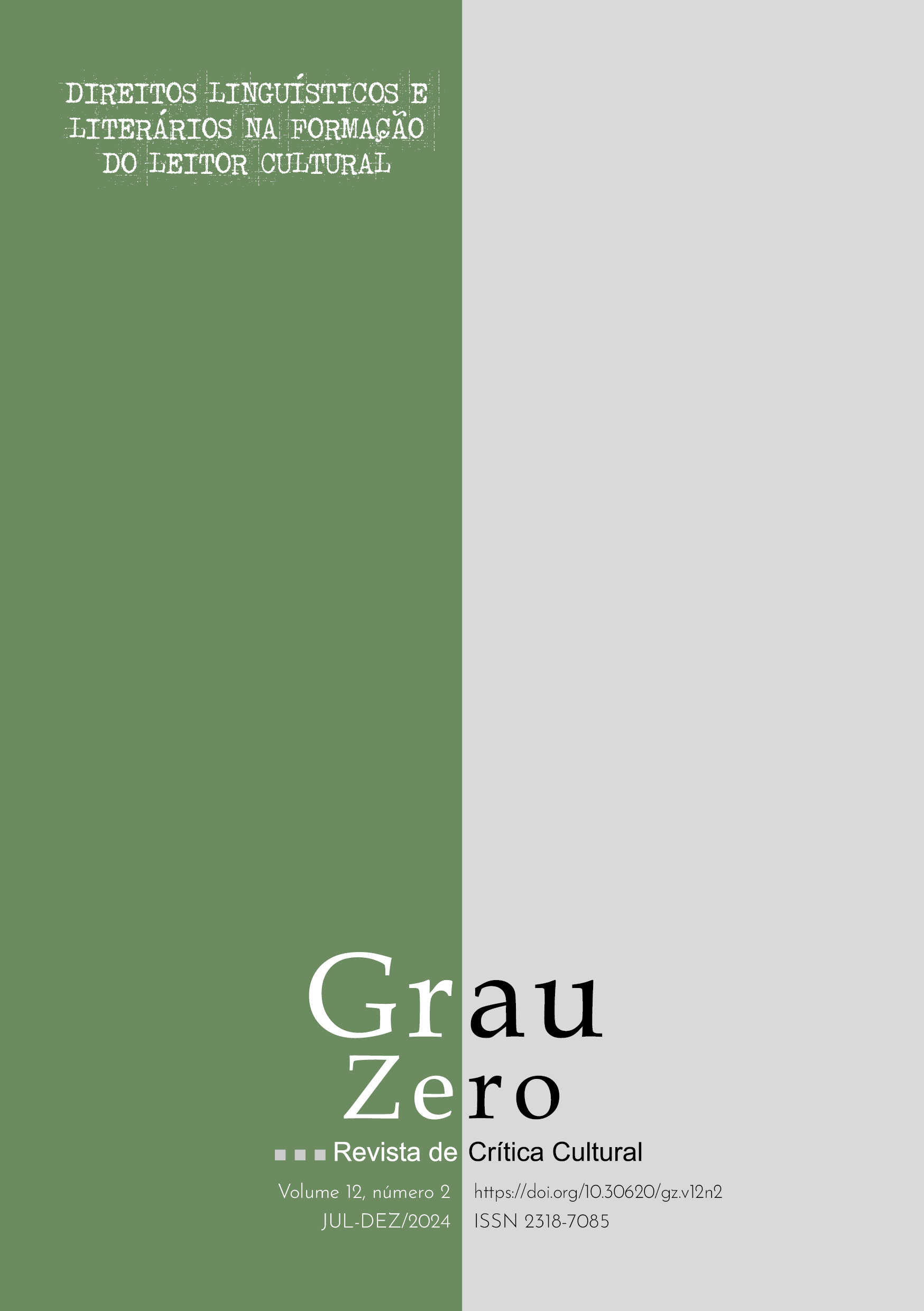Literature and linguistics in the AI era
writing assistance and the impact on creativity in education
DOI:
https://doi.org/10.30620/gz.v12n2.p57Keywords:
Artificial intelligence. Education. Authorship. Creativity. Ethical regulation.Abstract
This article explores the role of Artificial Intelligence (AI) In academic writing and its consequences for students’ creativity and original authorship. Based on authors such as Barthes, Foucault and Adorno, the study analyzes how AI modifies learning and challenges traditional authorship. Through document analysis and Interviews with educators, it was identified that, although AI facilitates access to knowledge and textual production, it can also discourage autonomy and critical thinking. The article highlights the need for ethical and pedagogical regulation to ensure that AI is used In a balanced and enriching way In education, preserving students’ creativity and authenticity. It is concluded that AI must be used with discernment, always valuing autonomy and original authorship.
Downloads
References
BARTHES, R. A morte do autor. In: O rumor da língua. São Paulo: Martins Fontes, 1977.
BAUMAN, Zygmunt. Modernidade Líquida. Cambridge: Polity Press, 2000.
BURKE, Kenneth. Linguagem como ação simbólica. Berkeley: University of California Press, 1966.
CARR, Nicholas. The Shallows: O que a Internet está fazendo com nossos cérebros. Nova York: WW Norton, 2011.
CHARTIER, Rogério. A Aventura do Livro: Do Leitor ao Navegador. São Paulo: Editora UNESP, 2002.
CHOMSKY, Noam. Conhecimento da Linguagem: Sua Natureza, Origem e Uso. Nova York: Praeger, 1986.
CRYSTAL, David. Linguagem e a Internet. Cambridge: Cambridge University Press, 2006.
CSIKSZENTMIHALYI, Mihaly. Criatividade: Fluxo e a Psicologia da Descoberta e Invenção. Nova York: HarperCollins, 1996.
FLORIDI, L.; CHIRIATTI, M. GPT-3: Its Nature, Scope, Limits, and Consequences. Minds and Machines, v. 30, n. 4, p. 681-694, 2020.
FOUCAULT, Michel. O que é um autor? In: Ditos e escritos III: Estética, literatura e pintura, música e cinema. Rio de Janeiro: Forense Universitária, 1969.
FREIRE, Paulo. Pedagogia da Autonomia. São Paulo: Paz e Terra, 1996.
GEE, James Paul. O que os videogames têm a nos ensinar sobre aprendizagem e alfabetização. Nova York: Palgrave Macmillan, 2007.
GOODY, Jack. A Lógica da Escrita e a Organização da Sociedade. Cambridge: Cambridge University Press, 1986.
HAVELOCK, Eric A. A Revolução Literária na Grécia e suas Consequências Culturais. Princeton: Princeton University Press, 1982.
HORKHEIMER, M.; ADORNO, T. Dialética do esclarecimento. Rio de Janeiro: Zahar, 1947.
LANKSHEAR, Colin; KNOBEL, Michele. Literacias digitais: conceitos, políticas e práticas. Nova York: Peter Lang, 2008.
LÉVY, Pierre. Cibercultura. São Paulo: Editora 34, 1999.
LEVY, Steven. No Plex: como o Google pensa, trabalha e molda nossas vidas. Nova York: Simon & Schuster, 2016.
MANOVICH, Lev. A Linguagem das Novas Mídias. Cambridge: MIT Press, 2001.
MCLUHAN, Marshall. Compreendendo a mídia: as extensões do homem. Nova York: McGraw-Hill, 1964.
MORAN, José Manuel. Novas Tecnologias e Mediação Pedagógica. Campinas: Papirus, 2015.
POSTMAN, Neil. Tecnopólio: A rendição da cultura à tecnologia.Nova York: Vintage Books, 1993.
POZO, Juan Ignácio. Aprendizes e Mestres: A Nova Cultura da Aprendizagem. Porto Alegre: Artmed, 2008.
PRENSKY, Marc. Nativos Digitais, Imigrantes Digitais. On the Horizon, v. 9, n. 5, p. 1-6, 2001.
SAHLBERG, Pasi. Lições Finlandesas: O que o Mundo Pode Aprender com a Mudança Educacional na Finlândia? Nova York: Teachers College Press, 2010.
SEALE, C.; GOLDACRE, B. Ethics and artificial Intelligence: Can AI be trusted? AI & Society, v. 35, n. 3, p. 741-753, 2020.
SHIRKY, Clay. Here Comes Everybody: O Poder de Organizar Sem Organizações. Nova York: Penguin Press, 2008.
SIEMENS, George. Conectivismo: Uma Teoria de Aprendizagem para a Era Digital. International Journal of Instructional Technology and Distance Learning, v. 2, n. 1, p. 3-10, 2004.
TURKLE, Sherry. Reivindicando a Conversa: O Poder da Conversa na Era Digital. Nova York: Penguin Press, 2015.
Published
How to Cite
Issue
Section
License
Copyright (c) 2024 Grau Zero – Revista de Crítica Cultural

This work is licensed under a Creative Commons Attribution-ShareAlike 4.0 International License.
Autores que publicam nesta revista concordam com o seguinte termo de compromisso:
Assumindo a criação original do texto proposto, declaro conceder à Grau Zero o direito de primeira publicação, licenciando-o sob a Creative Commons Attribution License, e permitindo sua reprodução em indexadores de conteúdo, bibliotecas virtuais e similares. Em contrapartida, disponho de autorização da revista para assumir contratos adicionais para distribuição não-exclusiva da versão do trabalho publicada, bem como permissão para publicar e distribuí-lo em repositórios ou páginas pessoais após o processo editorial, aumentando, com isso, seu impacto e citação.


















